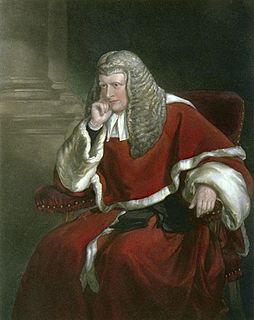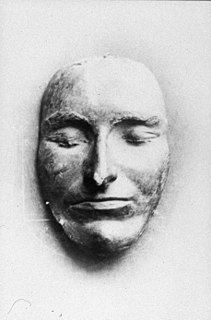John Williams was a convict transported to Van Diemen's Land (now Tasmania). He is best known as the man with whom Joseph Johns, later to become the bushranger Moondyne Joe, was arrested and tried for burglary.

Penal transportation or transportation was the relocation of convicted criminals, or other persons regarded as undesirable, to a distant place, often a colony for a specified term; later, specifically established penal colonies became their destination. While the prisoners may have been released once the sentences were served, they generally did not have the resources to get themselves back home.
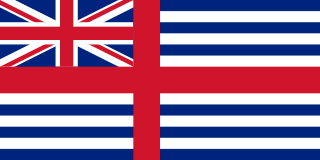
Van Diemen's Land was the original name used by most Europeans for the island of Tasmania, part of Australia. The name was changed from Van Diemen's Land to Tasmania in 1856.
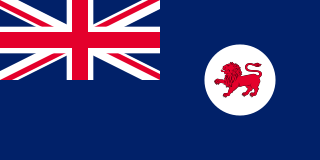
Tasmania is an island state of Australia. It is located 240 km (150 mi) to the south of the Australian mainland, separated by Bass Strait. The state encompasses the main island of Tasmania, the 26th-largest island in the world, and the surrounding 334 islands. The state has a population of around 526,700 as of March 2018. Just over forty percent of the population resides in the Greater Hobart precinct, which forms the metropolitan area of the state capital and largest city, Hobart.
Originally from Horsley, Gloucester, Williams was working as a canal boatman on the Brecon to Monmouth in Wales under the pseudonym William Cross when he and Johns were arrested on 15 November 1848 near Chepstow for "... illegally entering the premises of Mr Richard Price, Esquire, of Pentwyn Clydach... and from there taking three loaves of bread, one piece of bacon, several cheeses, a kettle and a quantity of salt". Arraigned at the Brecon Assizes on charges of burglary and stealing, the pair pleaded not guilty. On 23 March they were tried at the Lent Assizes before Sir William Erle. Newspaper reports of the trial suggest that the pair gave an unexpectedly spirited defence, but Johns was abrasive and "contravened the conventions of court procedure". The men were convicted and sentenced to ten years' penal servitude. Edgar (1990) observes that in several other cases brought before the same judge that day, guilty pleas to very similar charges resulted in sentences ranging from three weeks to three months.
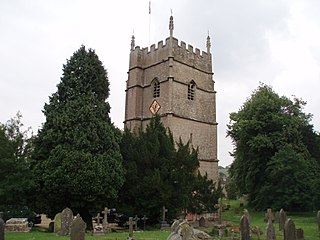
Horsley is a village and civil parish about one and a half miles south-west of the small Cotswold market town of Nailsworth. The origins of the name Horsley are much debated, although it is thought to be derived from the pre-7th century Old English phrase, "horse-lega", meaning "place of horses".
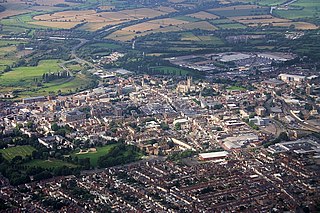
Gloucester is a city and district in Gloucestershire, in the South West of England, of which it is the county town. Gloucester lies close to the Welsh border, on the River Severn, between the Cotswolds to the east and the Forest of Dean to the southwest.

Canals, or navigations, are human-made channels, or artificial waterways, for water conveyance, or to service water transport vehicles.
Williams and Johns would have spent the next seven months working on a government work party in the local area, before being transferred to Millbank Prison. On 1 January 1850, they were transferred to Pentonville Prison to serve their mandatory six months of solitary confinement. The pair were transferred to Dartmoor Prison on 21 October 1851, but shortly afterwards Johns was transferred to a Woolwich prison hulk for disciplinary reasons. Williams remained at Dartmoor until March 1852, when he boarded the Fairlie for transportation to Van Diemen's Land.

Millbank Prison was a prison in Millbank, Westminster, London, originally constructed as the National Penitentiary, and which for part of its history served as a holding facility for convicted prisoners before they were transported to Australia. It was opened in 1816 and closed in 1890.
Solitary confinement is a form of imprisonment distinguished by living in single cells with little or no meaningful contact to other inmates, strict measures to control contraband, and the use of additional security measures and equipment. It is specifically designed for disruptive inmates that are security risks to other inmates, the prison staff, or the prison itself. It is mostly employed for violations of discipline, such as murder, hostage-taking, deadly assault, and rioting. However, it is also used as a measure of protection for inmates, whose safety is threatened by other inmates. Prison authorities consider solitary confinement an administrative placement measure, not a punishment.

Woolwich is a district of south-east London, England, within the Royal Borough of Greenwich. Originally a town in Kent, it has been part of the London metropolitan area since the 19th century. In 1965, most of the former Metropolitan Borough of Woolwich became part of Greenwich Borough, of which it remains the administrative centre.
The Fairlie arrived in Hobart on 4 July. Issued with a ticket of leave, Williams absconded several times, and had his ticket revoked on a number of occasions. On one occasion he received six months hard labour for being "upon the female premises without authority and holding communication with a female servant". He was awarded a conditional pardon on 11 December 1855 but it must have been revoked because another was later awarded to him. On 18 July 1859 he received his full pardon. No trace of his subsequent life has been found.

Hobart is the capital and most populous city of the Australian island state of Tasmania. With a population of approximately 225,000, it is the least populated Australian state capital city, and second smallest if territories are taken into account. Founded in 1804 as a British penal colony, Hobart, formerly known as Hobart Town or Hobarton, is Australia's second oldest capital city after Sydney, New South Wales. Prior to British settlement, the Hobart area had been occupied for possibly as long as 35,000 years, by the semi-nomadic Mouheneener tribe, a sub-group of the Nuennone, or South-East tribe. The descendants of these Aboriginal Tasmanians often refer to themselves as 'Palawa'.

